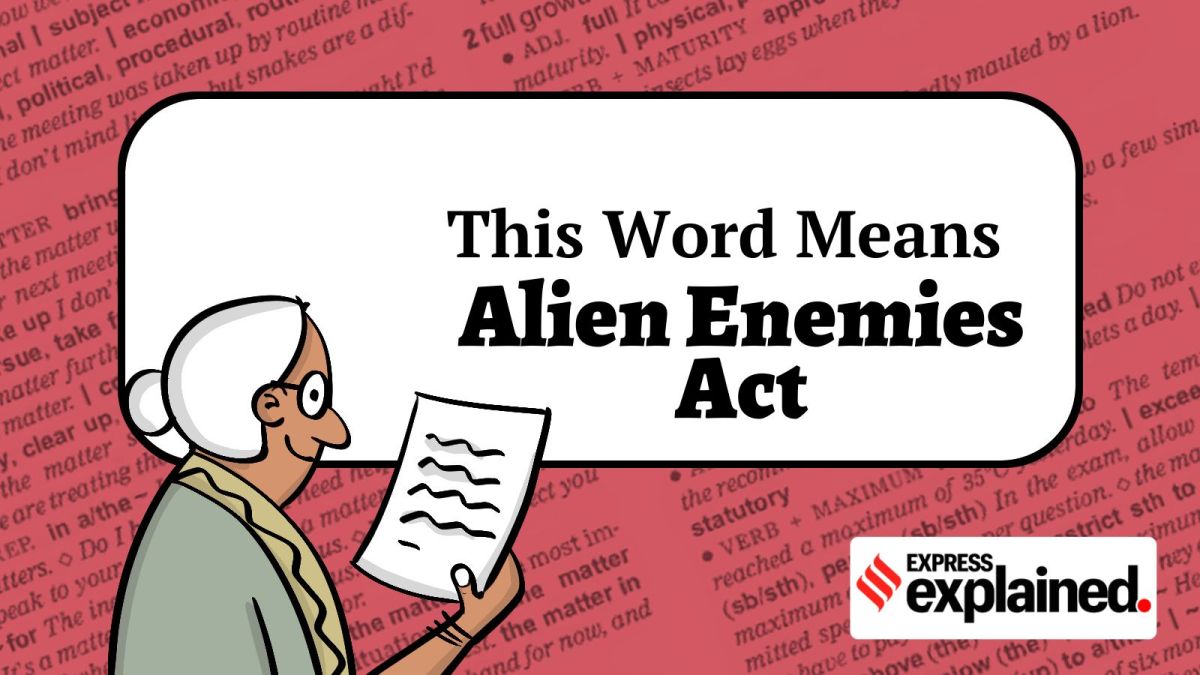This Word Means: Alien Enemies Act
Every day, 500 words on a word (or expression) that has appeared in The Indian Express.

WHY NOW?
US President Donald Trump signed an executive order on Saturday (March 15), ordering the removal of hundreds of Venezuelans from the United States for their alleged links to a designated Foreign Terrorist Organisation named Tren de Aragua. In doing so, Trump invoked the centuries-old Alien Enemies Act – something he promised to do during his election campaign.
Venezuela’s government on Sunday rejected Trump’s declaration under the law.
WHAT DOES THE ALIEN ENEMIES ACT SAY?
The Alien Enemies Act of 1798 Act empowers the US President to order “all such aliens as he shall judge dangerous to the peace and safety of the United States, or shall have reasonable grounds to suspect are concerned in any treasonable or secret machinations against the government” to be deported.
According to the US National Archives website, it helped tighten restrictions on foreign-born Americans and limited speech critical of the government.
Media reports say Trump has cited it because, unlike a more conventional path, it would allow him to bypass immigration courts – where those accused of violating immigration law can argue their case. Relief is also granted in certain cases (such as asylum).
WHY IS THE INVOCATION CONTENTIOUS?
Because of the context in which it is now being used. The Act has been previously invoked thrice, all during wartime – the War of 1812 between the US and the UK, World War I, and World War II. The Brennan Centre for Justice, a US-based law and policy organisation, explained on its website that the law was used for detentions, expulsions and restrictions that targeted German, Austro-Hungarian, Japanese, and Italian immigrants based solely on their ancestry.
Apart from direct conflict, it can also be invoked against an attempted or threatened “invasion or predatory incursion” by any foreign nation or government. When questioned about the timing of his invocation by the press, Trump said, “This is a time of war,” describing the influx of criminal migrants as “an invasion.”
Brennan Centre says, “Today, some anti-immigration politicians and groups urge a non-literal reading of invasion and predatory incursion… These politicians and groups view the Alien Enemies Act as a turbocharged deportation authority. But their proposed reading of the law is at odds with centuries of legislative, presidential, and judicial practice, all of which confirm that the Alien Enemies Act is a wartime authority.”
According to The NYT, federal judge James E Boasberg said he did not believe the law offered grounds for the president’s action. The US government has appealed the order.